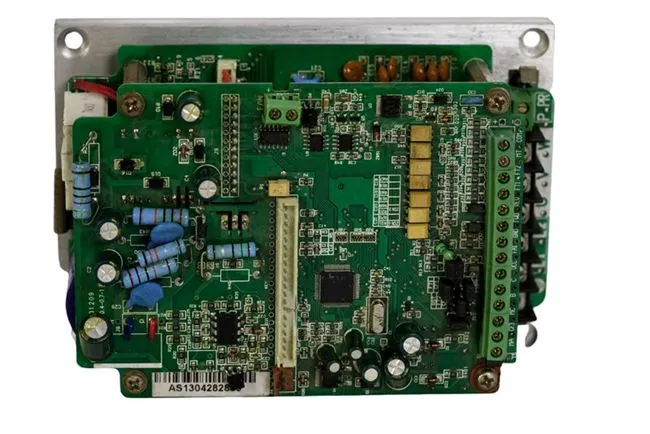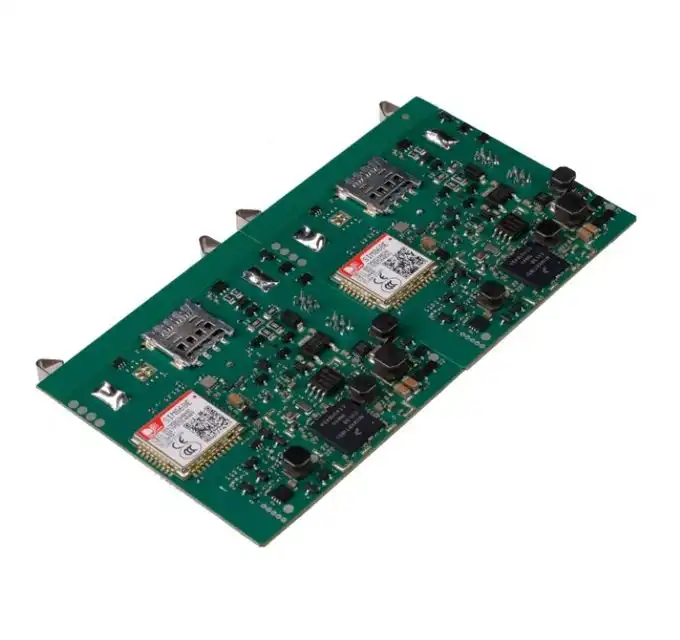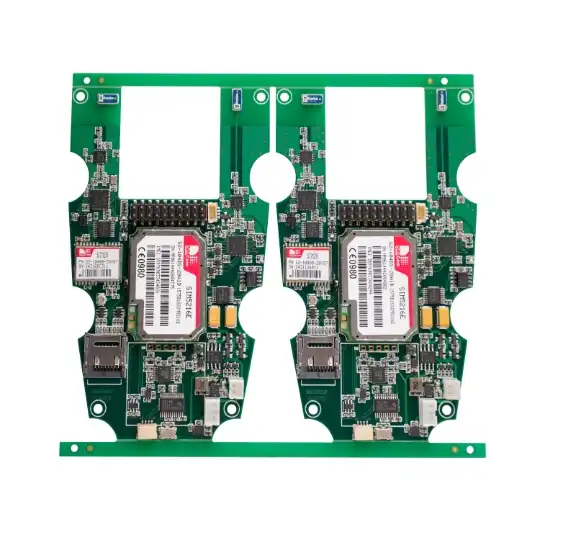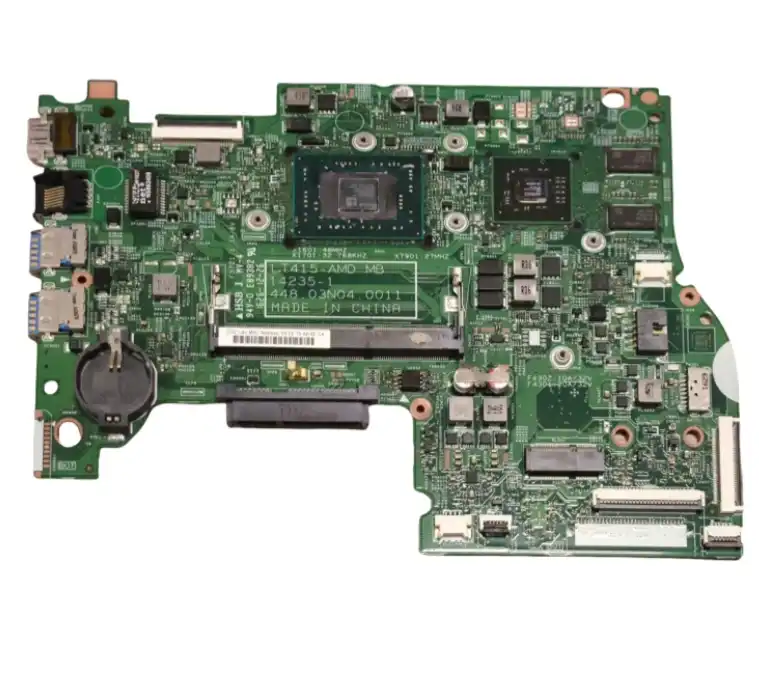Industrial control PCB manufacturers and Assembly Services
Industrial control PCB manufacturers and assembly services play a pivotal role in the production of sophisticated electronic systems that power modern industrial automation. These specialized providers offer comprehensive solutions, from designing robust printed circuit boards to assembling complex control units. With a focus on reliability, precision, and durability, industrial PCB assembly services ensure that critical control systems can withstand harsh environments while maintaining optimal performance. As industries increasingly rely on smart manufacturing and IoT integration, the demand for high-quality industrial PCBs continues to grow, making these manufacturers essential partners in technological advancement.

The Evolution of Industrial PCB Assembly Technologies
The landscape of industrial PCB assembly has undergone significant transformations in recent years. Advancements in manufacturing processes and materials have revolutionized the way industrial control boards are produced. Modern assembly techniques now incorporate cutting-edge technologies such as 3D printing for prototyping, laser-guided component placement, and automated optical inspection systems.
One of the most notable developments in industrial PCB assembly is the miniaturization of components. As industrial control systems become more compact and powerful, PCB manufacturers have had to adapt their assembly processes to accommodate smaller form factors without compromising functionality. This trend has led to the widespread adoption of surface mount technology (SMT), which allows for higher component density and improved performance in limited spaces.
Innovations in PCB Materials for Industrial Applications
Industrial PCB assembly services now utilize a wide range of specialized materials designed to withstand extreme conditions. High-temperature polymers and ceramic substrates have become increasingly common in applications where traditional FR-4 materials would fail. These advanced materials offer superior thermal management, chemical resistance, and mechanical strength, essential for industrial control boards operating in challenging environments.
Furthermore, the integration of flexible and rigid-flex PCBs has opened new possibilities for industrial control systems. These versatile boards allow for unique form factors and can be bent or folded to fit into tight spaces, making them ideal for applications where traditional rigid boards would be impractical. The ability to combine rigid and flexible sections in a single board has also led to increased reliability by reducing the need for connectors and solder joints.
Quality Assurance in Industrial PCB Manufacturing
Quality control is paramount in industrial PCB assembly, where the failure of a single component can lead to significant downtime and potential safety hazards. Leading manufacturers have implemented rigorous testing protocols throughout the production process to ensure the highest standards of reliability and performance.
Automated optical inspection (AOI) systems have become standard in industrial PCB assembly lines. These sophisticated machines use high-resolution cameras and advanced image processing algorithms to detect even the smallest defects in solder joints, component placement, and board integrity. AOI systems can inspect hundreds of points on a PCB in seconds, significantly reducing the likelihood of defective boards reaching the end-user.
In-Circuit Testing and Functional Verification
Beyond visual inspection, industrial PCB manufacturers employ in-circuit testing (ICT) to verify the electrical characteristics of assembled boards. ICT systems use a bed-of-nails fixture to make contact with specific points on the PCB, allowing for rapid testing of individual components and circuit paths. This process can identify issues such as short circuits, open connections, and incorrect component values that may not be visible to the naked eye or AOI systems.
Functional testing is the final step in ensuring the quality of industrial control PCBs. Manufacturers simulate real-world operating conditions to verify that the assembled board performs as intended. This may involve subjecting the PCB to temperature cycling, vibration testing, and prolonged operation under load. By rigorously testing each board before shipment, industrial PCB assembly services can provide customers with confidence in the reliability and longevity of their control systems.
The Role of Industrial PCB Assembly in Industry 4.0
As industries worldwide embrace the concepts of Industry 4.0, industrial PCB assembly services have become integral to the implementation of smart manufacturing systems. The integration of sensors, microcontrollers, and communication modules into industrial control boards enables real-time data collection, analysis, and automated decision-making.
Industrial PCB manufacturers are now incorporating features such as built-in diagnostic capabilities and remote monitoring functionality into their designs. These advanced boards can communicate their status, predict potential failures, and even initiate self-maintenance routines. Such capabilities are essential for predictive maintenance strategies, which can significantly reduce downtime and maintenance costs in industrial settings.
Cybersecurity Considerations in Industrial PCB Design
With the increased connectivity of industrial control systems comes a greater need for robust cybersecurity measures. Industrial PCB assembly services are now working closely with cybersecurity experts to implement hardware-level security features directly on the control boards. This may include secure boot processes, encrypted memory, and physical tamper detection mechanisms.
Additionally, industrial PCB manufacturers are developing boards with modular designs that allow for easy updates and upgrades. This approach enables industrial customers to keep their control systems current with the latest security patches and performance improvements without the need for complete system replacements. The ability to quickly adapt to evolving cybersecurity threats is crucial in maintaining the integrity and reliability of industrial control networks.
Conclusion
Industrial control PCB manufacturers and assembly services continue to push the boundaries of what's possible in electronic manufacturing. Through innovations in materials, assembly techniques, and quality assurance processes, these specialized providers ensure that industrial control systems can meet the demanding requirements of modern manufacturing environments. As Industry 4.0 initiatives drive the need for more intelligent and connected systems, the role of industrial PCB assembly in shaping the future of industrial automation becomes increasingly significant.
One-stop factory for industrial PCB manufacturing | Ring PCB
Ring PCB offers comprehensive industrial PCB assembly services with advanced capabilities. Our expert team provides full turnkey solutions, optimizing designs for manufacturability and cost-efficiency. We ensure rigorous quality control through cutting-edge inspection and testing processes. With high reliability, EMI resistance, and wide operating ranges, our industrial control PCBAs deliver exceptional performance for demanding applications. Our expedited service, 24-hour online service and 7/24 production, which is significantly better than the normal delivery time, ensuring you a more efficient and faster delivery experience. Contact us at [email protected] to learn how our one-stop PCB manufacturing can meet your industrial control needs.
References
1. Smith, J. (2022). "Advancements in Industrial PCB Manufacturing Techniques." Journal of Electronics Manufacturing, 15(3), 78-92.
2. Johnson, L. et al. (2021). "Quality Assurance Protocols in Industrial Control PCB Assembly." International Conference on Industrial Electronics and Applications, 456-470.
3. Brown, R. (2023). "The Impact of Industry 4.0 on Industrial PCB Design and Manufacturing." Industrial Automation Review, 28(2), 112-128.
4. Chen, Y. and Davis, M. (2022). "Cybersecurity Considerations for Industrial Control PCBs." Journal of Industrial Cybersecurity, 7(4), 201-215.
5. Thompson, E. (2021). "Materials Innovation in Industrial PCB Manufacturing." Advanced Materials for Electronics, 12(1), 45-59.

Welcome to Ring PCB! Share your inquiry, and receive a tailored quotation!

Ring PCB, your trusted partner for PCB & PCBA Full Turnkey Solutions



